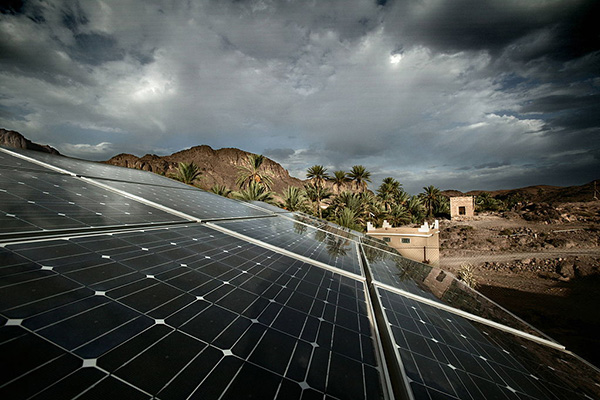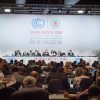
At the COP22 meeting in Marrakesh, Morocco and the EU member States France, Germany, Portugal and Spain announced a Joint Declaration on the Establishment of a Roadmap for Sustainable Electricity Trade (SET) between Morocco and the European Internal Energy Market. The goal is to facilitate the ‘mutually beneficial’ exchanges of renewable electricity between Morocco and the EU through the gradual integration of their electricity markets. The Joint Declaration aims to devise a roadmap that considers the different technical, economic, environmental and legal elements of such exchanges, in order to reach an implementation accord next year, ideally during the COP23. This post welcomes the proposal but argues, first, that international politics should also be taken into account; secondly, that there are several lessons to be learnt from the failure of two previous projects, namely the Desertec initiative and the Mediterranean Solar Plan; and, finally, that any SET roadmap requires a realistic but attractive narrative to overcome political obstacles.
On the first point, it has been highlighted that cross-border electricity flows are scarce worldwide due to the fact that transnational electricity interconnections face several political and geopolitical obstacles that are rarely included in the techno-economic analyses that typically guide such projects. Furthermore, the impacts of electricity interconnections over existing conflicts are ambiguous, depending on whether they cross conflict, co-existence or integrative borders: interconnections across conflict borders are not realistic and tend to fail across merely co-existence borders, while they have more traction when they are proposed between borders open to regional integration. In this regard, Morocco and the EU share, in principle, electricity integration borders: Morocco imports from Spain as much as 15% of its electricity consumption, existing interconnections allow for the synchronisation of the Moroccan electricity system with the EU’s, and both the EU and Morocco have ambitious targets for renewables. However, political preferences regarding renewables policy are not necessarily fully aligned and have geopolitical and geo-economic implications that need to be considered in the design of any realistic SET roadmap.
Secondly, the Mediterranean has already seen the failure of the Desertec initiative and the Mediterranean Solar Plan, both intended to export renewable electricity from the southern shore of the Mediterranean to Europe. Both initiatives failed for various reasons, but the main lessons to be learnt are the lack of realism and the inability to provide an attractive narrative for both Southern Mediterranean and European countries. The lack of realism generated unattainable expectations given incompatible energy policies and institutional frameworks, the absence of physical interconnections and diverging energy demand trends: importing electricity from a Southern Mediterranean afflicted by booming domestic energy demand to a European market characterised by excess capacity and renewables’ support-fatigue was not the most sensible idea at the time. Market realities clearly showed that rationality lies in Europe exporting electricity to its Mediterranean neighbours rather than the other way around.
Finally, both Desertec and the Mediterranean Solar Plan adopted ill-informed energy narratives, presenting them as the mere substitution of hydrocarbons and pipelines by renewables and electricity lines. Instead of proposing the deployment of renewables as a driver for the sustainable development of Mediterranean neighbours, contributing to its energy and industrial development –as well as to job creation and technology transfers–, the European narrative replicated an obsolete discourse: European companies (industry and utilities) exploiting and exporting renewable resources to their home markets, with few value added and even fewer kilowatts remaining in the Southern neighbourhood. Such a discourse also alienated member States such as Spain, who felt penalised for not being allowed to export their renewable electricity surplus through France due to the absence of intra-EU interconnections and at the same time being asked to integrate new renewables from North Africa. The already shrinking Mediterranean Solar Plan was then blocked by Spain due to both lack of realism and the inconsistencies of promoting renewables exchanges with neighbours while not solving intra-EU bottlenecks like the Pyrenees.
Certainly, the SET roadmap will be most welcome, but will its fate be any different this time round? It is to be hoped so, but will mostly depend on the narrative deployed by the signatories, mainly whether attractive prospects are offered to Morocco and to what extent intra-EU bottlenecks are considered. In any case, the failure of the Desertec initiative and the Mediterranean Solar Plan show that no techno-economic roadmap guarantees success if it is not accompanied by an attractive narrative that addresses the geo-economic and geopolitical elements of renewable electricity cross-border trade.


